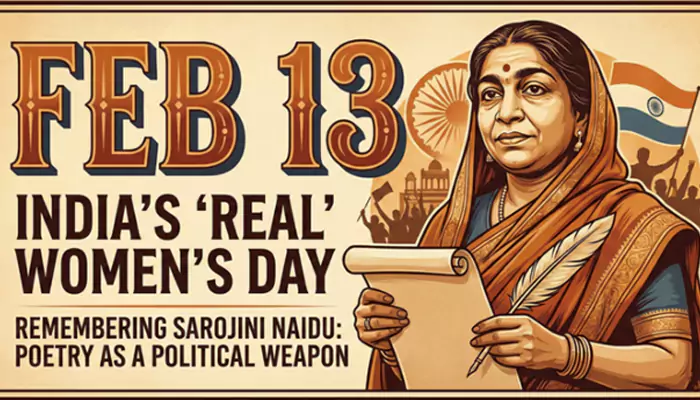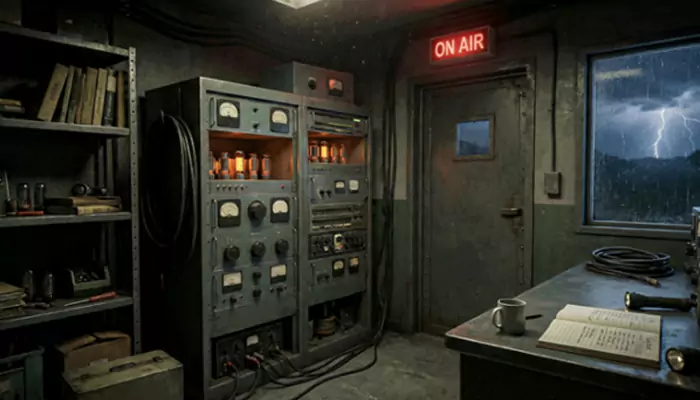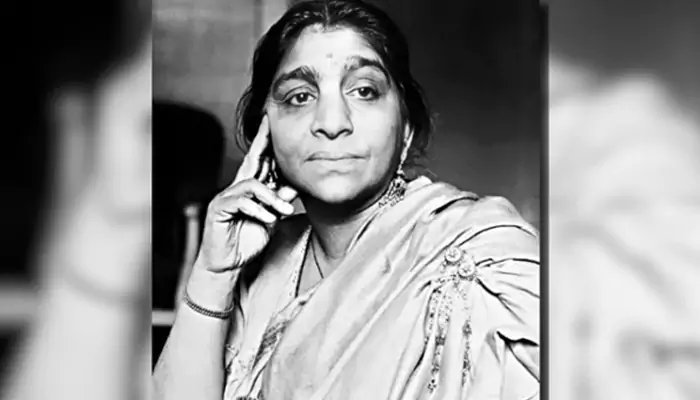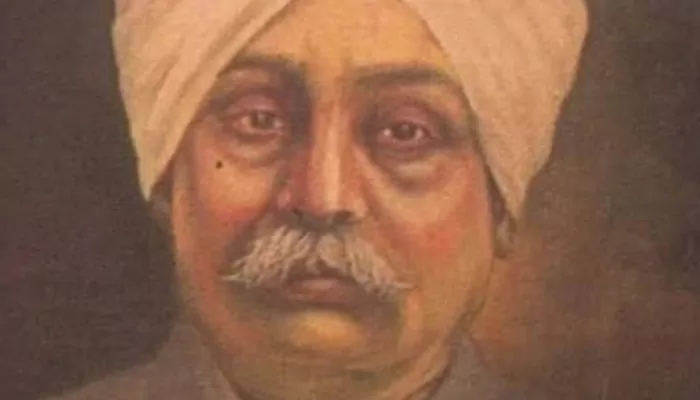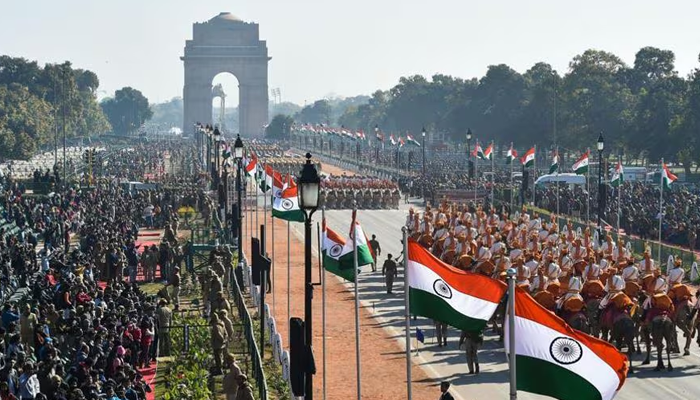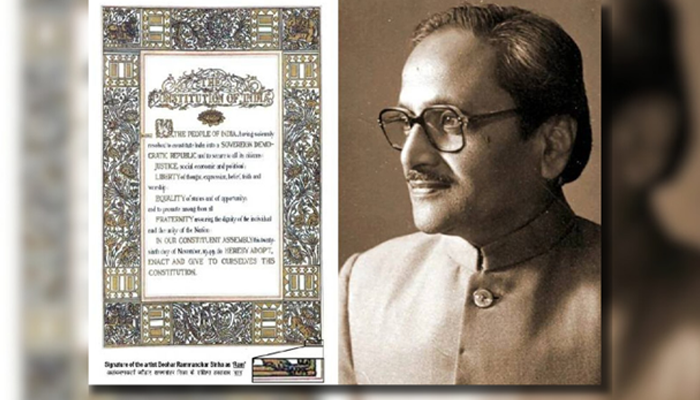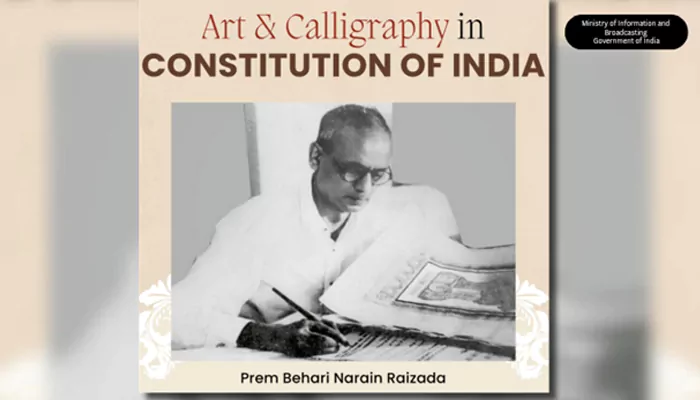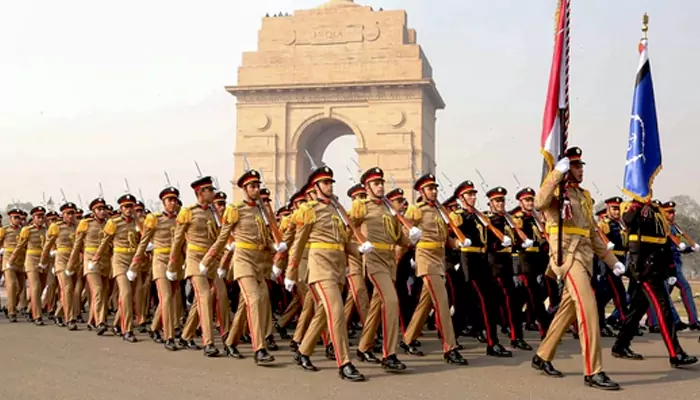On This Day, 1949 - The Constitution Of India Was Adopted: Know About Prem Behari Narain Raizada - The Calligrapher Who Wrote It
- Sayan Paul
- 1 year ago
- 4 minutes read

The Constitution of India - the longest written national constitution in the world - is handwritten, and not printed.
"The Constitution is not a mere lawyer’s document, it is a vehicle of Life, and its spirit is always the spirit of Age." - Dr BR Ambedkar
November 26 is celebrated as the "Constitution Day" in India. Because on this very date back in 1949, the Constitution of India was adopted by the Constituent Assembly of India. It became effective on January 26, 1950, and declared India a sovereign, socialist, secular, and democratic republic, assuring its citizens justice, equality, and liberty, and endeavoring to promote fraternity.
The original Constitution of India was not a printed document. It was entirely handcrafted by the artists of Shantiniketan under the guidance of Acharya Nandalal Bose with the calligraphy texts done by Prem Behari Narain Raizada in Delhi. pic.twitter.com/IkA2bdqiYB
— History of Congress (@INCHistory) April 24, 2018
Credit: History of Congress
As you may already know, Dr BR Ambedkar is widely regarded as the architect of the Constitution of India. But do you know who wrote it? Yes, the document is entirely handwritten as Jawaharlal Nehru - the first Prime Minister of independent India - wanted it this way, and not printed. And for that job, a legendary calligrapher was chosen. Today, we will remember him in this article.
Prem Behari Narain Raizada - The Calligrapher Who Hand-Wrote The Constitution of India
Born on December 17, 1901, in a family of traditional calligraphists, Prem Behari Narain Raizada was first exposed to the art of Indian calligraphy by his grandfather (Master Ram Parshadji Saxena, a scholar of English and Persian and a handwriting researcher). His uncle Mahashya Chatur Behari Narayan Saxena also had a great influence on him.
While studying at the prestigious St. Stephen's College in Delhi, Raizada refined his calligraphic skills and became a professional. After completing his graduation, he started working and gained enormous recognition with time.

During the late 1940s, when the Constitution of India was being drafted by the Constituent Assembly of India, Pandit Jawaharlal Nehru approached Raizada to write out the first copy.
How He Wrote The Constitution
To hand-write the Constitution, Raizada was allotted a room in the Constitution Hall which is now known as the Constitution Club of India. The draft consisted of 395 articles, 8 schedules, and a preamble - and he completed the whole task over the course of six months. He wrote it in a flowing italic style (which was his signature style), using 432 pen-holder nibs (No. 303, all brought from England and Czechoslovakia).
It was written on parchment sheets measuring 16X22 inches (which have a lifespan of over a thousand years). There's not even one blotch of ink, and not a single word is misplaced throughout the document.
The original copy of the Constitution of India (English) was handwritten by Shri Prem Behari Narain Raizada of Rampur.
— Om Birla (@ombirlakota) November 25, 2020
The 500 calligraphed sheets of the Constitution were decorated in 4 years, by Shri NandLal Bose of Shantiniketan. #ConstitutionAt71 pic.twitter.com/Ycg7EkMaDg
Credit: Om Birla
The manuscript was completed and adopted on November 26, 1949. And it was signed on January 26, 1950. It has 251 pages and weighs 3.75 kilograms.
Now, What Was His Remuneration For The Job?
Well, this is where the thing becomes more interesting. When asked by Nehru what he would charge as his remuneration, Raizada said he didn't want a single penny. However, he did have one request.
As he replied, "Not a single penny. By the grace of God, I have all the things and am quite happy with my life. But I have one reservation—that on every page of the Constitution, I will write my name and on the last page I will write my name along with my grandfather’s name."
This was the original Preamble to the Constitution of India.
— Anshul Saxena (@AskAnshul) April 14, 2020
The 42nd Amendment by Congress also amended Preamble and changed the description of India from "sovereign democratic republic" to a "sovereign, socialist secular democratic republic" pic.twitter.com/hwyceHf7Ss
Well, his request was granted.
Some Interesting Facts To Know
The Constitution of India was first signed by Dr Rajendra Prasad (the first President of India) and last by Feroze Gandhi (the president of the Constituent Assembly).
The borders of each page of the document feature artwork by Nandalal Bose and his students from Shantiniketan.
The original manuscript is now placed (in a vault-like room in a helium-filled case) in the library of the Parliament of India.


